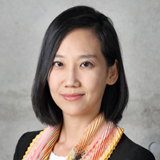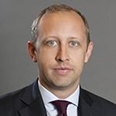
THE ASAN PUBLIC OPINION BRIEF
Public Opinion on Social Division
SOURCE OF SOCIAL CONFLICT : YOUNGNAM-HONAM/METROPOLITAN-PROVINCE
July 16-18
On a scale of 0 to 10, how do you perceive the intensity of the divide [a) between residents of the Youngnam and residents of Honam, b) between residents in the Seoul metropolitan area and residents in the provinces]?
(0: Not Strong; 5: Normal; 10: Very strong, %)
Koreans perceived regional conflict to be less severe compared to other sources of social tension. However, how does perception about regional tension vary by region?
Youngnam-Honam Seoul and the Youngnam area showed the most contrast in perception of the Youngnam-Honam divide: 56.7% of respondents residing in Seoul perceived a strong conflict, around 20pp more than respondents residing in Youngnam (36.4%). Other regions were, in descending order, Honam (48.9%), Gangwon-Jeju (46.4%) and Chungcheong (39.0%).
Analysis of average scores also shows a statistically significant difference between Seoul respondents (7.36) and Youngnam respondents (6.11). Other differences in mean scores were not statistically significant.
Metropolitan-province : An emerging division being discussed is between the Seoul metropolitan area and the provinces.
While 43.1% of Seoul respondents and 47.0% of respondents in other provinces deemed this a “strong” conflict.
METHODOLOGY
- The sample size of each survey was 1,000 respondents over the age of 19.
- The surveys were conducted by Research & Research, and the margin of error is ±3.1% at the 95% confidence level.
- All surveys employed the Random Digit Dialing method for mobile and landline telephones.
3-day rolling average?
The sample size of each survey was 1,000 respondents over the age of 19. The surveys were conducte d by Research & Research, and the margin of error is ±3.1% at the 95% confidence level. All surveys employed the Random Digit Dialing method for mobile and landline telephones.
This brief is a product of the Public Opinion Studies Center at the Asan Institute for Policy Studies.
Contact Karl Friedhoff at klf@asaninst.org.

 Facebook
Facebook Twitter
Twitter![On a scale of 0 to 10, how do you perceive the intensity of the divide [a) between residents of the Youngnam and residents of Honam, b) between residents in the Seoul metropolitan area and residents in the provinces]?](http://en.asaninst.org/wp-content/uploads/2014/01/ASAN-Dailypoll_July_3+4_bq-19.jpg)

